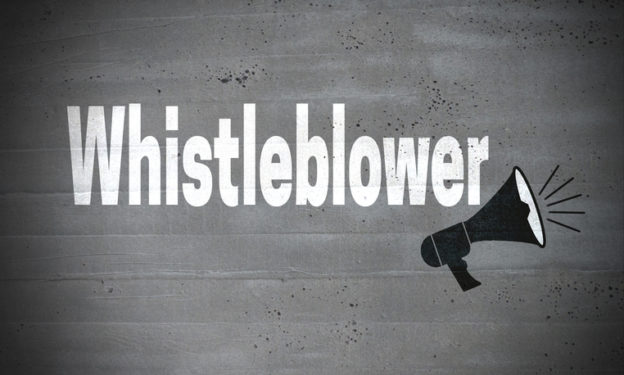By Brian Neil Hoffman and Jeremy Ben Merkelson

Brian Neil Hoffman
The United States Supreme Court today narrowed the universe of plaintiffs who can claim protection under the whistleblower anti-retaliation provisions of the 2010 Dodd-Frank Wall Street Reform and Consumer Protection Act (Dodd-Frank). In a unanimous decision, the Court held that employees are not protected under Dodd-Frank unless they report information relating to a violation of the securities laws to the Securities and Exchange Commission (SEC). Employees who only report violations internally within their company, therefore, are not protected by Dodd-Frank’s anti-retaliation provisions.
Statutory Whistleblower Definition Applies
Dodd-Frank defines a “whistleblower” as someone who provides pertinent information “to the Commission” (SEC). Yet this clear language becomes less certain because Dodd-Frank protects “whistleblowers” for engaging in certain specified conduct, including making reports to non-SEC individuals, such as a company supervisor.
In today’s decision in Digital Realty Trust, Inc. v. Somers, the Court concluded that Dodd-Frank’s anti-retaliation provision applies only to employees who fall within the definition of a whistleblower and have engaged in one of the specified types of conduct. As a result, individuals who have not reported to the SEC are, by definition, not Dodd-Frank whistleblowers protected under the act’s anti-retaliation provision. Stated differently, an employee who makes an internal report of securities violations, or an external report to any entity other than the SEC, is not a whistleblower under Dodd-Frank.
Internal Reports of Securities Violations Not Protected
In the case before the Supreme Court, employee Paul Somers reported to senior management at his employer, Digital Realty Trust, Inc., that he suspected violations of securities laws being made by the company. He did not report his suspicions to the SEC. Shortly thereafter, Digital Realty terminated his employment. Somers sued Digital Realty alleging that he was protected from retaliation under the whistleblower protections of Dodd-Frank.
Digital Realty argued that Somers was not a whistleblower under Dodd-Frank because he failed to report to the SEC prior to his termination. A federal district court judge in San Francisco and a divided panel in the Ninth Circuit disagreed with Digital Realty and denied dismissal of Somers’ claim. Judge Ginsburg’s opinion for the Supreme Court, siding with Digital Realty, settles this issue after courts addressing this same issue in other cases reached differing results from Texas to New York to California. It is now clear that a plaintiff cannot claim whistleblower retaliation under Dodd-Frank without having reported to the SEC before suffering adverse conduct by an employer.
Employer Takeaways
This decision presents a mixed bag for employers. On the one hand, the decision is good news for employers because the ruling narrows the scope of protections available under Dodd-Frank’s anti-retaliation provisions. Dodd-Frank contains multiple plaintiff-friendly provisions – including immediate access to federal court, a generous statute of limitations (at least six years), and the opportunity to recover double back pay. Yet these benefits are now only available to a, presumably, smaller number of potential plaintiffs who actually report to the SEC.
On other hand, there are many reasons for employers to be wary of the ruling. Rather than incentivize employees to report their suspected concerns internally, today’s decision heavily encourages potential whistleblowers to report their concerns directly to the SEC – before any adverse action occurs, but also before employers have had the chance to hear, investigate, and address their potential concerns. Indeed, when an internal report does arrive, it may be safest for employers to assume that the SEC already has that same report. Notably, individuals who report their concerns internally may still assert retaliation claims under Sarbanes-Oxley Act (SOX), which itself provides significant monetary recovery in the form of back pay with interest, reinstatement, and other costs.
As a result, employers should remain vigilant about avoiding retaliation when reports about potential concerns arise. Employers should also consider engaging in a timely and proactive response to potential concerns, often in consultation with outside counsel and which may include an appropriate and comprehensive investigation and remediation of the matter.


